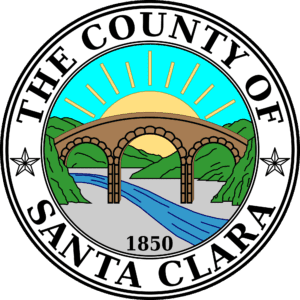A $500,000 Plagiarism Scandal

Jean McCorquodale is the wife of former California state senator Dan McCorquodale. Between 2009 and 2019, she held a very lucrative position at the Santa Clara County government.
According to The Mercury News, In 2009, she was awarded a no-bid contract to be the sole grant writer for the county. In 2014 she was offered a five-year extension on that deal. At the beginning of this term, she was making $120,000 per year, an amount that had grown to $220,000 in 2016 and 2017.
However, it was in 2018 that she was offered an additional contract. This was to write a book about the history of the county and its government. For this, her payment jumped from $220,000 to $510,000 in 2018 and remained above $500,000 in 2019.
Despite the payments, work on the book fell behind. According to McCorquodale, this was largely due to the pandemic preventing her from accessing key historical documents. Either way, a 580-page draft of the book was submitted in January of this year.
However, according to an investigation by The Mercury News, roughly one-fifth of the book was copied from a variety of online sources. Those sources included, among others, Wikipedia, the History Channel, The Mercury News itself, official government websites and more. Roughly half of the copied paragraphs did not contain footnotes, and none of the paragraphs indicated that the text was quoted.
This has led to Supervisor Otto Lee calling for an inquiry into the book and the various contracts that were awarded McCorquodale. Specifically, they are seeking a “third-party investigator” to further investigate McCorquodale’s work.
Disclosure: This is the type of work that I do professionally as part of my consulting practice and expert witness work. However, I have not been asked about this case as of this writing. As such, all information I have is from published sources.
For McCorquodale’s part, she claims that the submitted draft was not her final draft and that the copied paragraphs were “placeholders”. However, McCorquodale has not provided an updated draft to either the county or to the news media.
All in all, the plagiarism aspect of this story is really just a small part of a much larger tale that centers around the $2.45 million she has been awarded since 2009 in no-bid contracts. However, it is still an important piece that speaks to the work McCorquodale was doing and whether or not it was worth the money she was paid.
Examining the Plagiarism
The plagiarism is fairly straightforward. According to The Mercury News, about one-fifth of the 580-page book was copied near-verbatim from various sources, with very little changed. In the example provided by the paper, it’s safe to say that the rewrites are completely insignificant.
However, this isn’t really denied by McCorquodale. She doesn’t claim that the copied content isn’t there, but that it was a rough draft of her work and that she plans to rewrite those portions.
That explanation, to be blunt, is farcical.
We’ve talked about this a great deal recently, but it’s simply the truth that one does not write an original work and “edit” it into their own words. Not only is it prone to mistakes and errors, but even if it is done perfectly, it is still just an edited version of someone else’s writing, not an original creation by the editor.
Simply put, the only way to ensure that you’re writing authentically is the cleanroom writing technique. Separating your notes, not allowing outside content to mingle with your writing and citing as part of the writing, not the editing, process ensures that the new work is original.
Clearly McCorquodale did not do that.
However, even if I grant that she intended to change those sections, it doesn’t alter the fact that she submitted the draft to her supervisor for review. In a classroom setting, any time a student submits a draft of a work, it is reasonably expected that it will be free of plagiarism. That includes everything from the first draft to the final draft.
McCorquodale’s argument essentially holds her work to a lower standard than a basic high school essay. If it’s not acceptable for a ninth grade student to have plagiarism in a rough draft, it’s not acceptable for her to either.
But even if we set that aside as well, according to the original report, over half of the copied text didn’t even have footnotes. This means that there is no attribution for the information, let alone the words. So, even if she did replace every single copied word, she would still have plagiarism issues in the book.
There’s simply not much justification of this and her excuse, if anything, makes the issue worse by painting the picture of an incredibly sloppy writer that holds herself to standards lower than those high school students work under every day.
Why it Matters
As we discussed at the beginning of this piece, the plagiarism aspect is only a tiny part of a much larger scandal. Simply put, there are much bigger questions about why she was given the contracts and if anything improper took place.
To be clear, a good grant writer can be worth their weight in gold. According to County Executive Jeff Smith, McCorquodale’s work brought in some $320 million in grant dollars and, as a result, there was justification for awarding her the no-bid contracts as she was uniquely qualified.
However, this book was the justification for more than doubling her pay and, even without the plagiarism, there are many issues with the book and the value it brings.
First, the book likely won’t be available to the public and, even if it is published, will likely only be available in the county government building and the county archives. Given how much money was paid for the book, it raises questions about the value the county is receiving.
Second, the book was two years behind already when this draft was submitted. Though the pandemic certainly brought about additional challenges, a book being this far behind brings additional concerns.
It’s worth noting that McCorquodale says she worked on the book for two years without pay and also paid out of pocket for aides and design work. However, it’s also worth noting that she was paid over $500,000 for the book alone, an amount much greater than most authors get for a book advance.
But all of this speaks to a simple question: For as much as was paid to McCorquodale, what did the county receive? While the grant writing is up in the air, with regards to the book, the county received a significantly late draft of a book that contained widespread plagiarism and, even if it is published, it’s unclear how many will view it.
In short, this plagiarism raises serious questions about McCorquodale’s work and the county is right to investigate both this book but her other contracts and arrangements. So while the plagiarism is only a small piece of the picture, it is a very illustrative one.
Bottom Line
In the end, based on the evidence I’ve seen, there’s not much doubt that McCorquodale plagiarized in her book. The only real question is just how serious it is. Without seeing the full report, we have to take The Mercury News at their word on the amount.
However, it’s definitely clear that there was plagiarism and that, based on McCorquodale’s explanation, she was not writing the book in an ethical manner. That, in turn, raises the question of why?
It’s possible that McCorquodale simply didn’t care much about the book and didn’t think anyone was going to read it, let alone check it for plagiarism or other issues. Given the likely outcome for the book, she wouldn’t have been very wrong to think so.
If it hadn’t been for other aspects of her tenure coming under scrutiny, it’s unlikely anyone would have given the book as much as a second look. Proof of this is in that the draft was submitted to the county in January and this analysis was performed by the paper just this past week.
However, it’s also possible that McCorquodale simply got in over her head. Grant writing and writing a book are two very different kinds of writing. Even if she is a very skilled grant writer, she might not have had the skill set needed to pull this book together.
That, in turn, could explain both the delays and the plagiarism issues. While this doesn’t absolve her of the ethical failings in committing plagiarism, it makes it far less premeditated.
Either way, the county certainly has many difficult questions to answer with regard to McCorquodale and her work. They seem to be setting the stage for a strong, independent investigation, which is probably the only way to bear those issues out.
Want to Reuse or Republish this Content?
If you want to feature this article in your site, classroom or elsewhere, just let us know! We usually grant permission within 24 hours.
